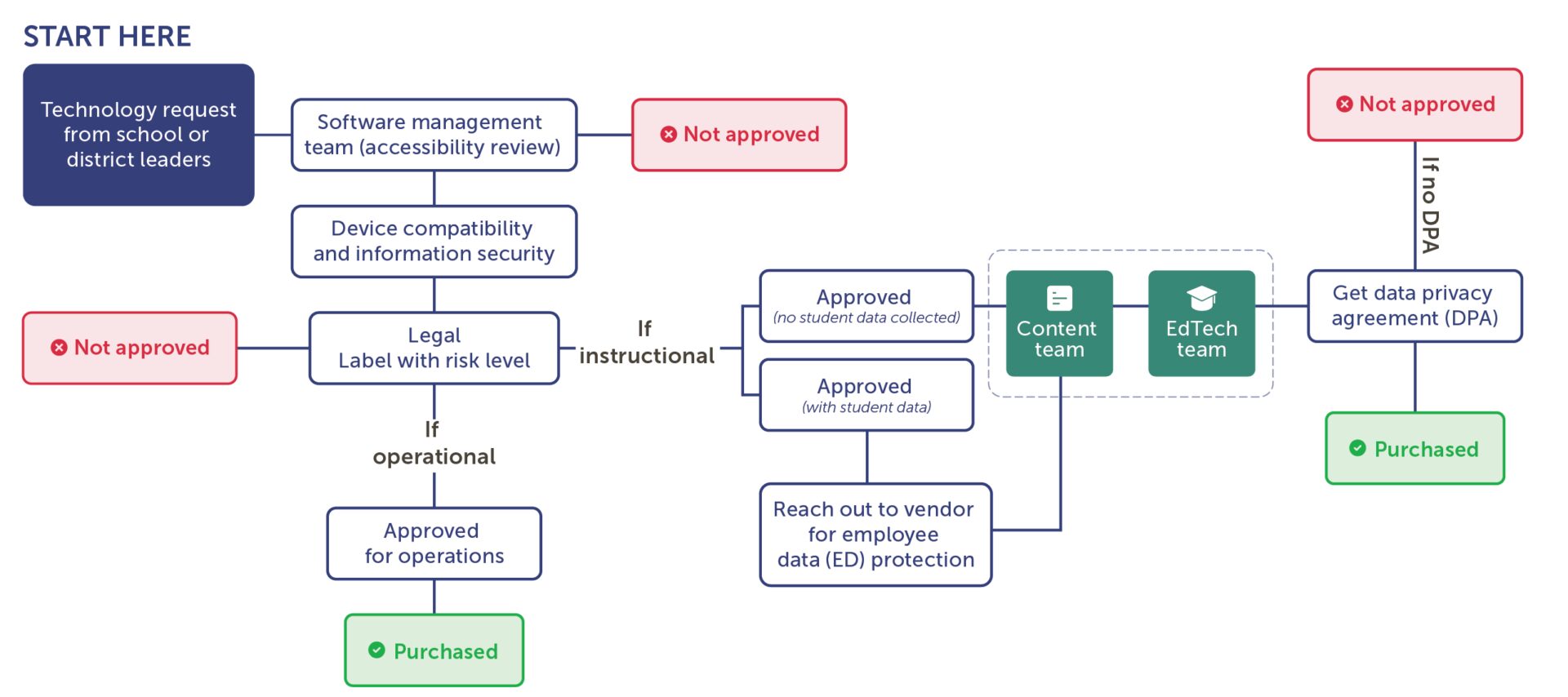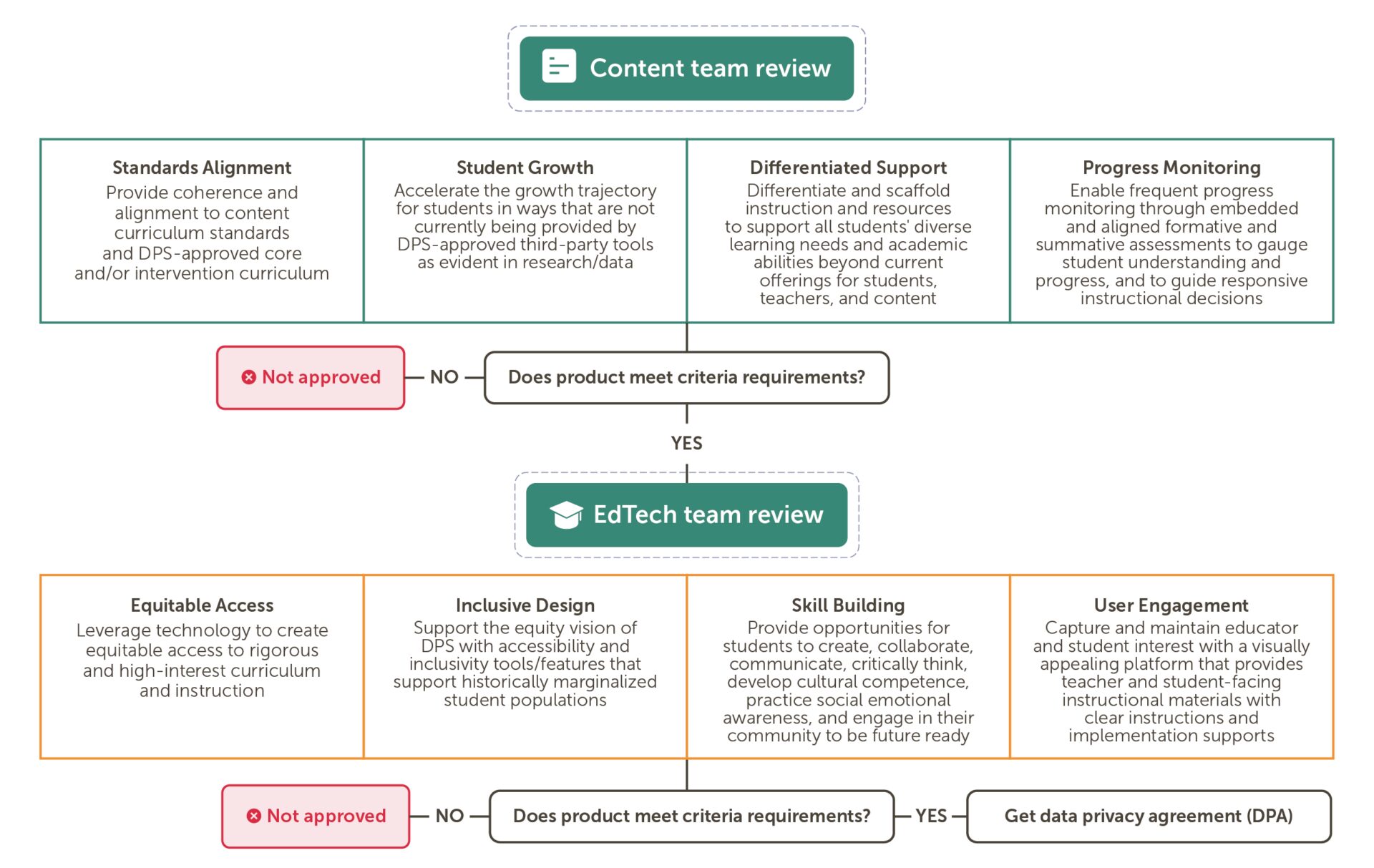
We ultimately believe our students deserve better, and it’s our collective responsibility to ensure educational equity. It is our responsibility, with that mindset, to make sure what’s in front of our kids is worth being in front of our kids.
School Leader, DPS
DPS assembled a cross-functional, collaborative team to design a robust evaluation process —which each edtech product must undergo before being approved for use across the district—and created an approved product repository to transparently share which tools have been approved or denied through this process, and why.


Denver Public Schools’ Edtech Evaluation Decision Tree
The innovative procurement process has already led to several early successes, including:
By establishing a standardized review process, the DPS team evaluates technology based on cybersecurity standards, such as which data the tool collects, especially from students, as well as content review to determine whether the tool is aligned to grade-level state standards, district curriculum, and has evidence of positive learner outcomes.
Through this evaluation process DPS is strategically limiting the number of edtech tools in the district, better positioning the district to understand each tool’s impact on student achievement. The narrowed number of options can lead to more focused evaluations and conversations about effectiveness.
This process has enabled DPS to consolidate the number of tools available to schools, leading to more intentional professional learning that may drive more effective implementation.
The district pre-negotiates bulk license rates, often at a 50% user discount, and establishes a district contract with the vendor. DPS then offers these rates to any school in the district that chooses to opt in and leverage these tools. In the first year of developing cohort purchasing, the district saved nearly $200,000 while maintaining or increasing the number of purchased licenses.
Improving instruction, teacher practice, and student learning at scale through technology comes with its challenges. The first step is building a system that values stakeholder voice, student data privacy, and instructional impact and strategic alignment.
Dr. William “Billy” Sayers
Director of STEAM at Denver Public Schools